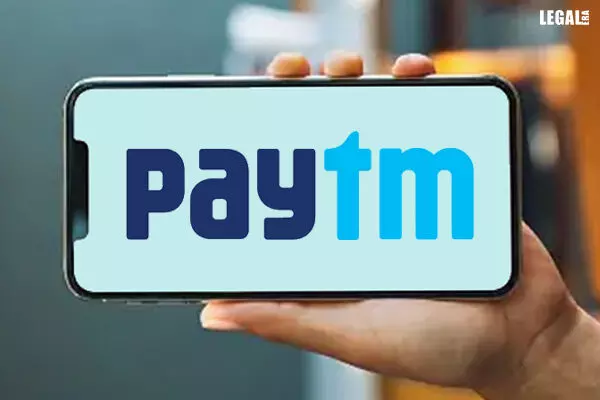- Home
- News
- Articles+
- Aerospace
- Artificial Intelligence
- Agriculture
- Alternate Dispute Resolution
- Arbitration & Mediation
- Banking and Finance
- Bankruptcy
- Book Review
- Bribery & Corruption
- Commercial Litigation
- Competition Law
- Conference Reports
- Consumer Products
- Contract
- Corporate Governance
- Corporate Law
- Covid-19
- Cryptocurrency
- Cybersecurity
- Data Protection
- Defence
- Digital Economy
- E-commerce
- Employment Law
- Energy and Natural Resources
- Entertainment and Sports Law
- Environmental Law
- Environmental, Social, and Governance
- Foreign Direct Investment
- Food and Beverage
- Gaming
- Health Care
- IBC Diaries
- In Focus
- Inclusion & Diversity
- Insurance Law
- Intellectual Property
- International Law
- IP & Tech Era
- Know the Law
- Labour Laws
- Law & Policy and Regulation
- Litigation
- Litigation Funding
- Manufacturing
- Mergers & Acquisitions
- NFTs
- Privacy
- Private Equity
- Project Finance
- Real Estate
- Risk and Compliance
- Student Corner
- Take On Board
- Tax
- Technology Media and Telecom
- Tributes
- Viewpoint
- Zoom In
- Law Firms
- In-House
- Rankings
- E-Magazine
- Legal Era TV
- Events
- Middle East
- Africa
- News
- Articles
- Aerospace
- Artificial Intelligence
- Agriculture
- Alternate Dispute Resolution
- Arbitration & Mediation
- Banking and Finance
- Bankruptcy
- Book Review
- Bribery & Corruption
- Commercial Litigation
- Competition Law
- Conference Reports
- Consumer Products
- Contract
- Corporate Governance
- Corporate Law
- Covid-19
- Cryptocurrency
- Cybersecurity
- Data Protection
- Defence
- Digital Economy
- E-commerce
- Employment Law
- Energy and Natural Resources
- Entertainment and Sports Law
- Environmental Law
- Environmental, Social, and Governance
- Foreign Direct Investment
- Food and Beverage
- Gaming
- Health Care
- IBC Diaries
- In Focus
- Inclusion & Diversity
- Insurance Law
- Intellectual Property
- International Law
- IP & Tech Era
- Know the Law
- Labour Laws
- Law & Policy and Regulation
- Litigation
- Litigation Funding
- Manufacturing
- Mergers & Acquisitions
- NFTs
- Privacy
- Private Equity
- Project Finance
- Real Estate
- Risk and Compliance
- Student Corner
- Take On Board
- Tax
- Technology Media and Telecom
- Tributes
- Viewpoint
- Zoom In
- Law Firms
- In-House
- Rankings
- E-Magazine
- Legal Era TV
- Events
- Middle East
- Africa
Hyderabad District Commission Rules in Favour of Consumer in Domino's Gift Card Dispute

Hyderabad District Commission Rules in Favour of Consumer in Domino's Gift Card Dispute
The Hyderabad District Consumer Disputes Redressal Commission has ruled in favour of a consumer who filed a complaint against Paytm and Domino's regarding a gift card redemption issue. The complainant had purchased a Domino's gift card through Paytm but encountered difficulties in redeeming it for a food purchase. Despite repeated attempts to resolve the issue, no satisfactory solution was offered.
Presiding Member Vakkanti Narsimha Rao and Members P.V.T.R. Jawahar Babu and D. Sridevi, constituting the Consumer Disputes Redressal Commission bench, concluded that Paytm and Domino's had failed to address the complainant's concerns despite repeated notices and legal actions. This inaction, the Commission deemed, constituted negligence and a deficiency in service. Consequently, the Commission held the companies liable and ordered them to reimburse the complainant for the cost of the gift card and compensate them for the inconvenience caused.
The complainant, Uppala Rajeev Babu, purchased a ₹300 Domino's gift card through Paytm. However, when attempting to use the card for a food purchase at Domino's, it failed to function. Despite the complainant's efforts in reaching out to customer service and contacting both Domino's and Paytm, a satisfactory resolution was not attained. Rajeev escalated the matter by seeking assistance through the National Consumer App and subsequently issued legal notices to both companies. Yet he did not receive any response from either party. Frustrated by the lack of acknowledgement, Rajeev proceeded to file a consumer complaint, citing allegations of cheating, deficiency in service, and unfair trade practices against both Paytm and Domino's India Pizza.
The Commission ruled that despite the complainant's persistent attempts to redeem the gift card and seek assistance from both companies, neither Domino's nor Paytm provided a satisfactory response. This failure to respond adequately, even after the issuance of legal notices and communication, was deemed negligent, indicative of a deficiency in service, and constituted unfair trade practices on their part.
Consequently, the commission partially upheld the complaint. They instructed both companies to reimburse the ₹300 gift card amount and awarded ₹5,000 as compensation and litigation costs. A 45-day timeframe was granted for the companies to comply with the order.



